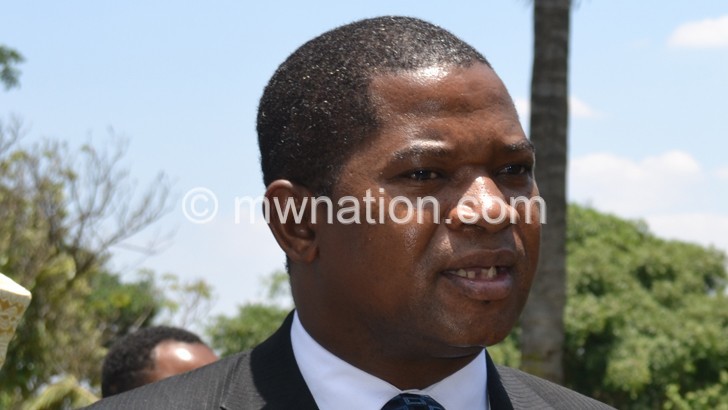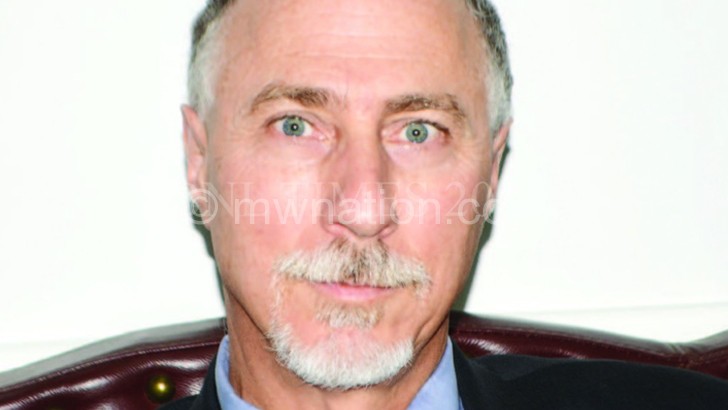Malawi in ‘tight situation’—IMF
International Monetary Fund (IMF) says Malawi is still in a “tight situation” to revive the off track Extended Credit Facility (ECF) programme with the fund.
But the IMF says it is encouraged with measures government is implementing, including cutting the 2015/16 National Budget as recommended by the fund’s mission that certified ECF off track in September.
Speaking in an interview on Friday on the sidelines of the 2015 Economics Association of Malawi (Ecama) Annual Lakeshore Conference in Mangochi, IMF country representative Geoffrey Oestreicher said IMF expenditure cuts to complete the programme set targets for end-December 2015 will be central to bringing back the stalled ECF on course.
ECF, approved in July 2012, is IMF’s main tool for medium-term financial support to low income member countries such as Malawi.
Said Oestreicher: “[Malawi] government is still in a tight situation and has been in this situation ever since Cashgate crisis started. Cashgate drained a lot of money out of the budget.

“But every indication that we have, is that government is implementing necessary expenditure cuts to complete programme targets for end-December.”
The latest IMF brief assessment on Malawi comes on the back of another end-June 2015 review undertaken by the fund’s mission in September which prompted IMF to declare the ECF off track due to government’s failure to meet some key agreed programme targets mostly on net domestic financing and on the Public Finance Management Reforms.
But Oestreicher admitted that cutting some budget lines as proposed by IMF would be painful.
He said: “This will be painful, but is much less painful than to allow the current situation of high inflation rate leading to high inflation rate and a reduced economic growth to continue.”
Malawi’s headline inflation rate, at 24.1 percent as of September 2015, is one of the highest rates the country has registered in recent years as average prices for most goods and services are soaring unabated.
Commercial banks have continued to hike their lending rates following the recent increase in the policy rate from 25 percent to 27 percent, creating a weak private investment atmosphere and a slowdown in household consumption in the process.
But Oestreicher said fiscal contraction by government will be key to bringing down the rate of inflation in the economy which he said will bring down interest rates and spur economic activity, moving forward.
However, asked whether there is any possibility that the December review will go in favour of Malawi, Oestreicher said: “Certainly, we are in discussion with government and they are committed to meeting those targets.”
But he said the commitment has to be backed up by appropriate tight fiscal policy and government of Malawi’s response to the agreed agenda for public finance management reforms.
On the possibility of donors returning to Malawi through budget support, Oestreicher said he was not better placed to comment on that, as such a consideration is done individually among the donors.
Currently, donors—who withdrew their 40 percent contribution to the recurrent budget in November 2013 amid concerns of Cashgate, the plunder of public funds at Capital Hill—have not yet unlocked their budget support to Malawi and have opted to finance the budget through off-budget support.
Reacting to the IMF latest statement on the status of the ECF, presidential adviser on economic affairs Collins Magalasi admitted that the country is still facing hiccups surrounding the implementation of the ECF but said government is working very hard to reverse the situation.
“We are positive that we should get back to the ECF of the IMF,” he said.
Magalasi, who was also a delegate at the Ecama meet opened by President Peter Mutharika on Thursday, said the implementation of programme activities under the Public Finance Management Reforms is on track, adding that government is cutting some budget lines while increasing the revenue with a view that we should not go back to borrow from the public any more.
“And once we have revised the budget downwards, we do hope that we should get back to the commitments that [we] made with the IMF,” he said.
Budget lines to be cut include travel which, according to a senior government economist, consumes at least K30 billion ($51. 6million) annually. The economist added that in the review, some budget lines will be cut whereas others will be increased.
Last week, the President expressed optimism that Malawi will meet the IMF requirements to return to the programme by December.
But in an interview last week, Ben Kaluwa, an economics professor at Chancellor College, a constituent college of the University of Malawi, wondered where Mutharika was drawing the enthusiasm to meet IMF conditions.
In its review, the IMF revised downwards Malawi’s economic growth rate to about 3.3 percent from 5.5 percent and recommended a revision of the budget to reflect economic realities.







I don’t have a clue either where the APM is drawing his enthusiasm. I suspect because he is the President of Malawi and not a doomsday economist. Giving hope I suspose. I am just saying